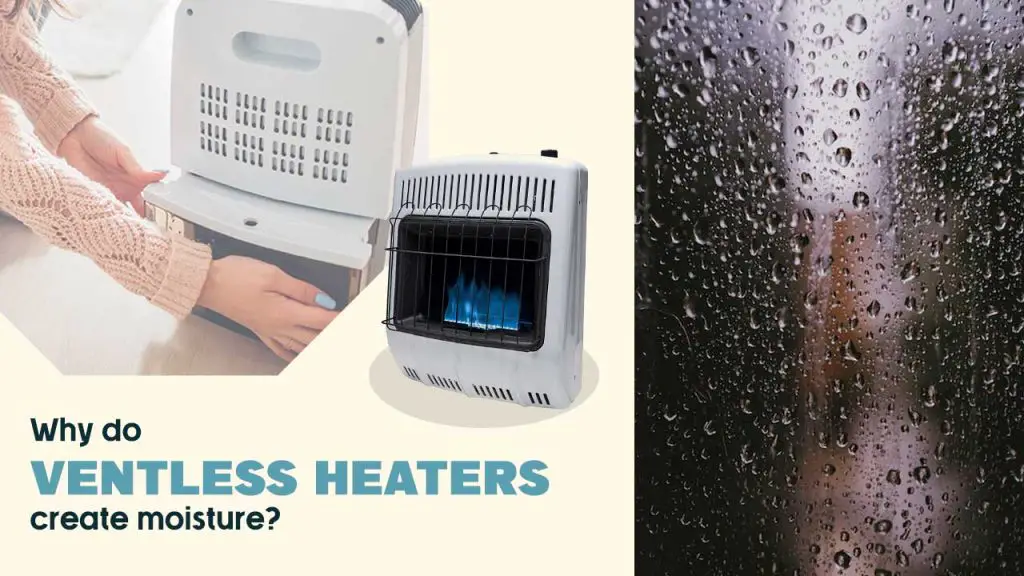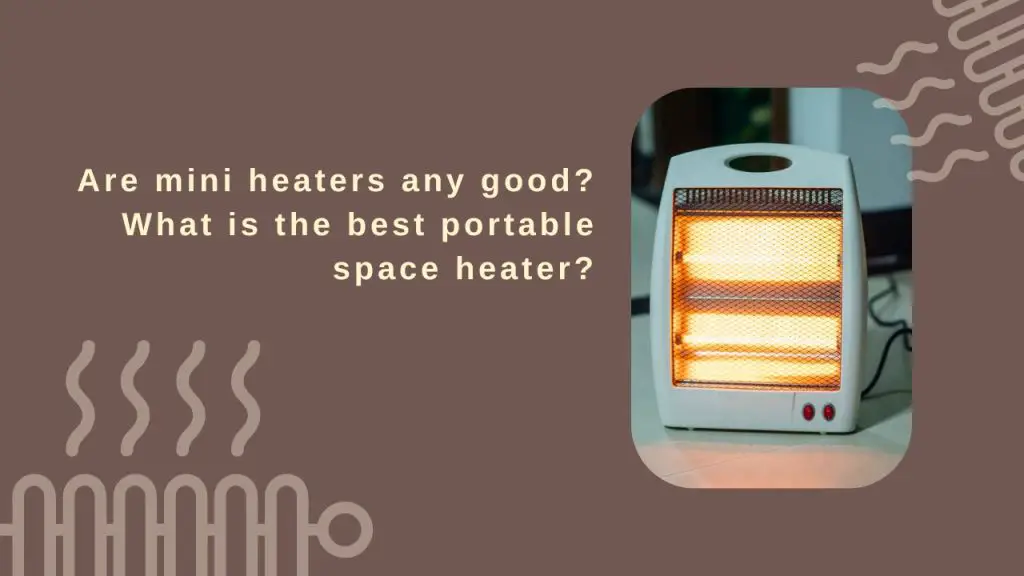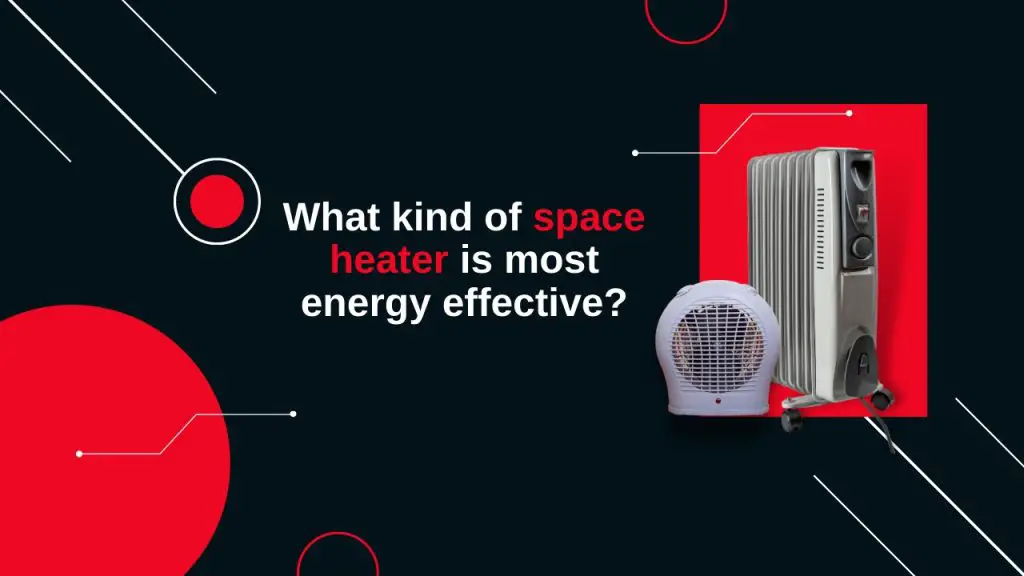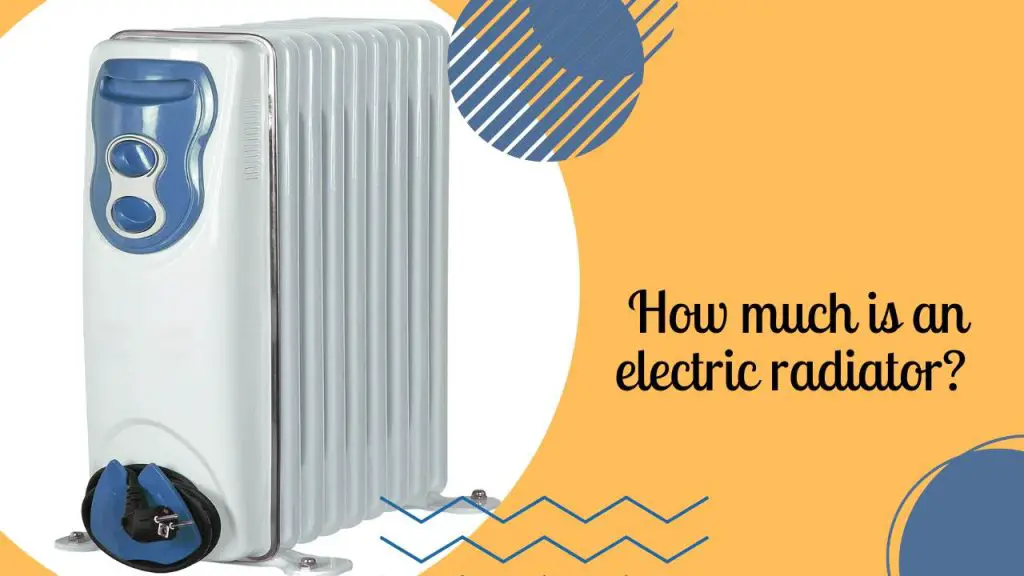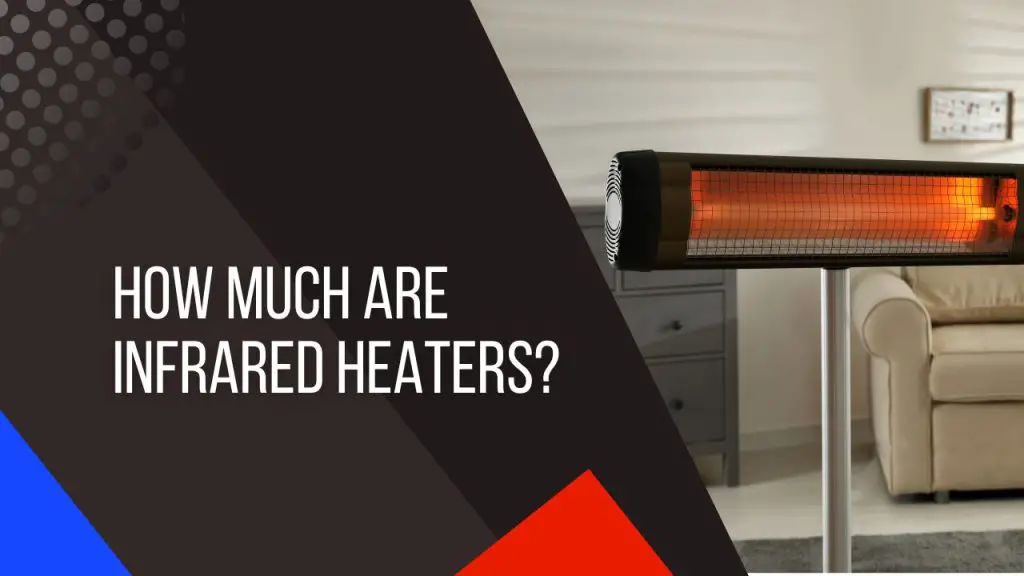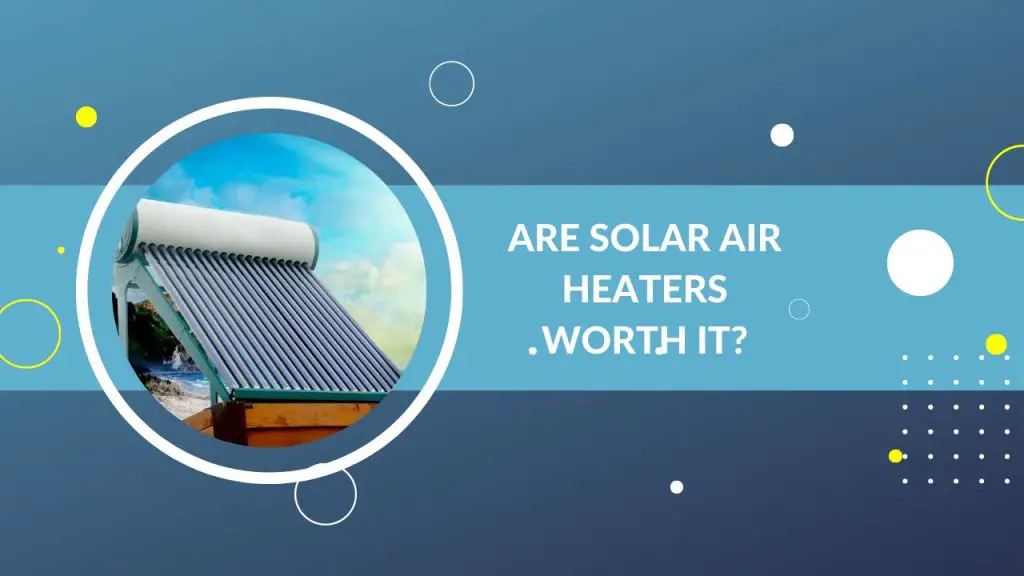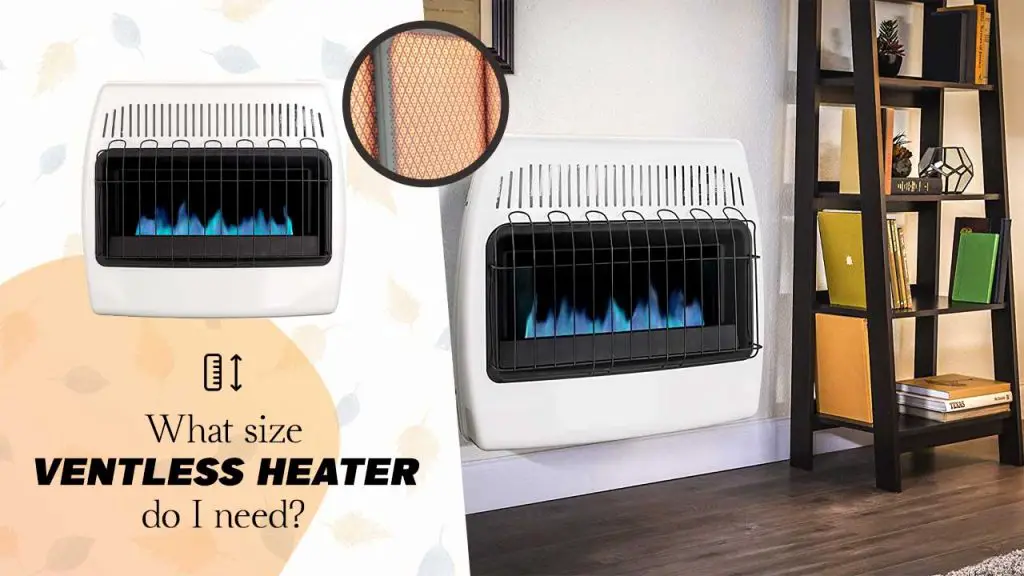In finding the right heating appliance to complement your central heating system, you may have come across ventless or vent-free heaters on the market. They are pretty much what the name implies; heaters that are not attached to any vents and have no escape route for their fumes.
Over the years, ventless heaters have become extremely popular among homeowners who consider them very efficient because no heat is wasted; there’s no opening for heat to escape. However, there has been a lot of talk about whether ventless heaters create moisture, and why.
Think about it for a moment; many ventless heaters are powered by natural gas, which is then released into the air. After all, water vapor makes up 80% of natural gas which is released into the air as the heater runs.
Without venting, this vapor lacks an escape route and remains in the room, causing the humidity level to spike. If you’ve ever been to the tropical rainforest, you’d begin to see a similar climate in your room. This is because of moisture buildup, from vapors released by the heater.
What Type of Ventless Heaters Create Moisture?
There are many types of ventless heaters, identified by their source of power. Of the different types of ventless heaters, natural gas heaters tend to create the most moisture because, as we mentioned earlier, natural gas contains 80% water vapor.
Methane, which makes up 70%-90% of natural gas, is made up of 4 hydrogen atoms and 1 carbon atom. When burnt in the presence of oxygen, it releases a lot of water vapor and carbon dioxide. Your natural gas heater does exactly that; it burns the natural gas in the presence of oxygen, and so water vapor is released.
Next to natural gas heaters are ventless propane heaters. Ventless Propane heaters also tend to create moisture when you run them inside your home. During combustion, an interaction takes place between propane, oxygen, and carbon dioxide.
This creates water vapor which is released into the air. Again, because the unit is ventless, there’s no provision for the fumes or moisture to be vented out. Rather, they’re released into the room and this can build up, raising your indoor humidity significantly.
Catalytic and blue flame ventless heaters are also great producers of water vapor during combustion. Others like electric ventless heaters and wood-burning ventless heaters do not have the capacity to create substantial moisture if any. In fact, wood burning is sometimes considered a dehumidifying agent.
Why Do Ventless Heaters Create Moisture?
The primary reason why ventless heaters, especially natural gas and propane types, create moisture is that their heat sources contain water as part of their composition and this water content is bound to be released as vapors during combustion.
In fact, every single pound of natural gas the heater combusts will produce 2.25 lb of water vapor, which amounts to about 12 percent of the weight of the entire exhaust. So, as long as the water is a by-product of combustion for the type of ventless heater you use, moisture will be created.
Secondly, the heater is vent-free. Truth is, you can use a vented propane or natural gas heater and wouldn’t need to worry about the moisture problem.
The issue here is that the heater is vent-free, so there is no escape route for the moisture created. The situation will even be worse if there’s no ventilation.
Another reason would be oversizing the ventless heater; some heaters are just too big for the rooms or spaces they’re deployed and this will be seen in the amount of moisture created. If you do not do anything about this accumulated moisture, you’d have to deal with issues like mold and mildew.
How Much Moisture Does a Ventless Heater Produce?
This depends on the type of ventless heater in use. On average, a catalytic or blue flame, propane ventless heater will produce as much as 1.5 to 1.8 pounds of moisture or water vapor for every single pound of propane burned.
That is a lot when you consider that the moisture produced is even more than the gas burned. As for natural gas, the figure is put at 2.25 lb of water vapor for each pound of natural gas combusted. This is one school of thought and the formula has held sway for many years.
However, there’s another way to look at it. Observation and close experiments have also shown that the size and capacity of the unit will determine how much moisture is produced per hour.
For example, a 20,000 BTU gas-powered ventless heater has the capacity to create a quarter gallon of water into the living space every single hour.
What Are Possible Problems Due to Ventless Heater Moisture?
The primary consequence of ventless heater moisture is condensation. Moisture can build up and form on appliances, electronics, furniture, walls, keeping even wooden floors and this can cause some damage.
This can also appear on windows and will be the first indication that humidity has become excess because there’s not enough air coming in to match indoor moisture. This can then degenerate into the growth of mold and mildew which distorts your walls and other surfaces.
More importantly, is the effect on your health. Excess humidity can open the floodgates to a number of complications and diseases that affect the upper respiratory tract.
This is also related to the fact that bacteria, fungi, and other harmful organisms thrive in wet environments and may affect your health.
Skin reactions are also common, especially because the water vapor produced from heating combustion is a pollutant. Then there’s the issue of damage to electrical appliances as a result of condensation settling in.
How To Deal with Ventless Heater Moisture Problems?
Below listed are the most effective ways to address the moisture problems created by ventless heaters.
1. Size the heater properly
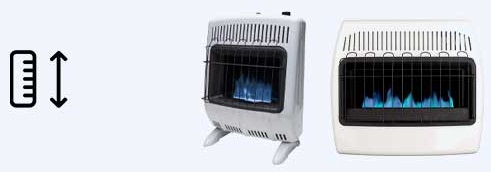
One of the major reasons for excess humidity as a result of ventless heater moisture is the fact that the heater is too large for the room. You must ensure that you do not go too big, regardless of the size of your room. Not only will you suffer from severe consequences of excess humidity, but, you may also be at risk of carbon poisoning.
2. Get fresh air in
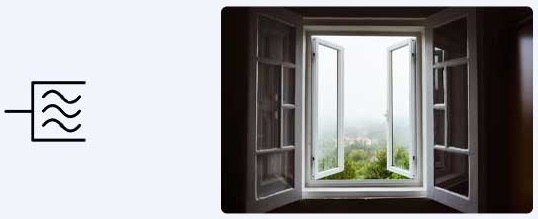
The best way to do this is to install a fan in the room. This will help to introduce forced and controlled air into the room, which can break and dry up water vapor in the air. An air conditioner is another way to get such dry, cool air into the room to minimize moisture creation and retention.
3. Leverage ventilation

This is, perhaps, the simplest way to prevent moisture problems in the room. It’ll be wise to simply partially open your windows and door to allow fresh air into the room and break down moisture vapors significantly.
4. Use a dehumidifier
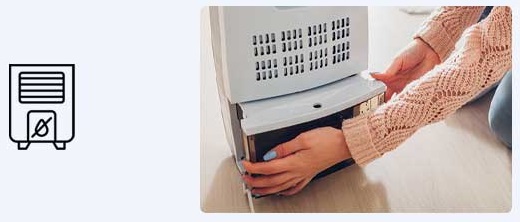
When all other methods have not yielded the desired result, you should consider installing a dehumidifier. A dehumidifier will help to reduce the moisture created by the ventless heater without distorting the heat in the room. However, this is the most expensive option in dealing with heater moisture problems.
5. Do not run all the time
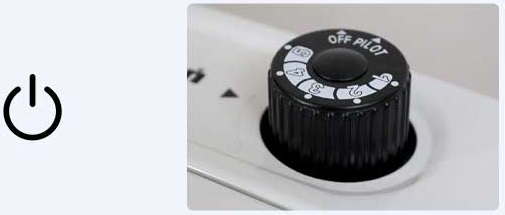
You shouldn’t run the heater at all times if you’re dealing with excess moisture. You can schedule some breaks in between a few hours of operation while letting air in whichever way possible.
Final Words:
If you’ve always wondered why ventless heaters create moisture, there you have it. Moisture (water) is a part of the constituents of propane and natural gas, and so it is natural for water to also be a by-product during combustion.
We must reemphasize that not all ventless heaters create moisture. Knowing this will help you make the right choice, just as having the information in this guide will help you deal with ventless heater moisture problems so that you can enjoy your ventless heater without any complications.
| Photo | Title | Buy |
|---|---|---|

|
LEVOIT Air Purifier for Home & Bedroom - For Allergies and Pets Hair | Check Price On Amazon |

|
BREEZOME 60 OZ Quiet Dehumidifiers for Home, Dual-Semiconductor | Check Price On Amazon |
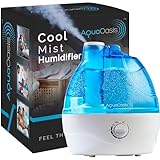
|
AquaOasis™ Cool Mist Quiet Ultrasonic Humidifier for Bedroom & Large room | Check Price On Amazon |

|
43.3'' Portable Air Conditioners, 3-IN-1 Evaporative Air Cooler w/Remote | Check Price On Amazon |

|
BlueDri BD-AS-550-BL Negative Machine Airbourne Cleaner HEPA Air Scrubber | Check Price On Amazon |

|
Space Heater, VCK 24" 12ft/s Fast Quiet Heating Portable Electric Heater | Check Price On Amazon |
